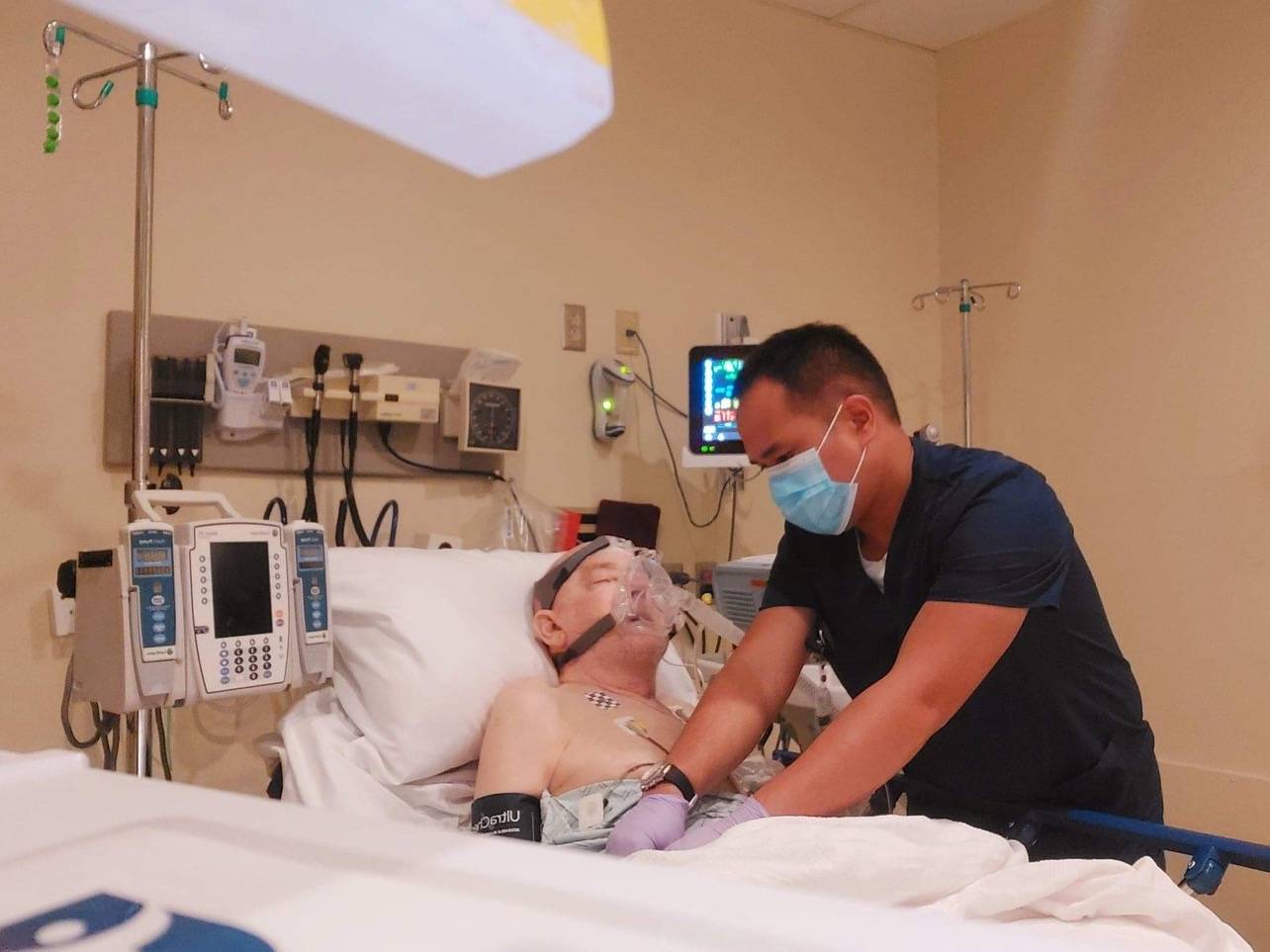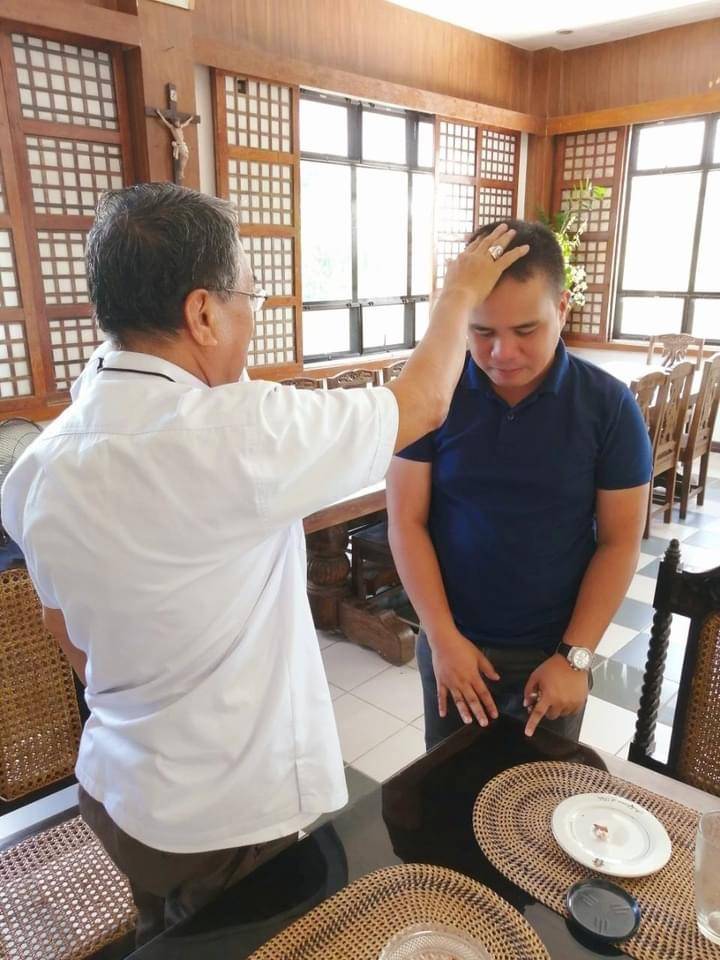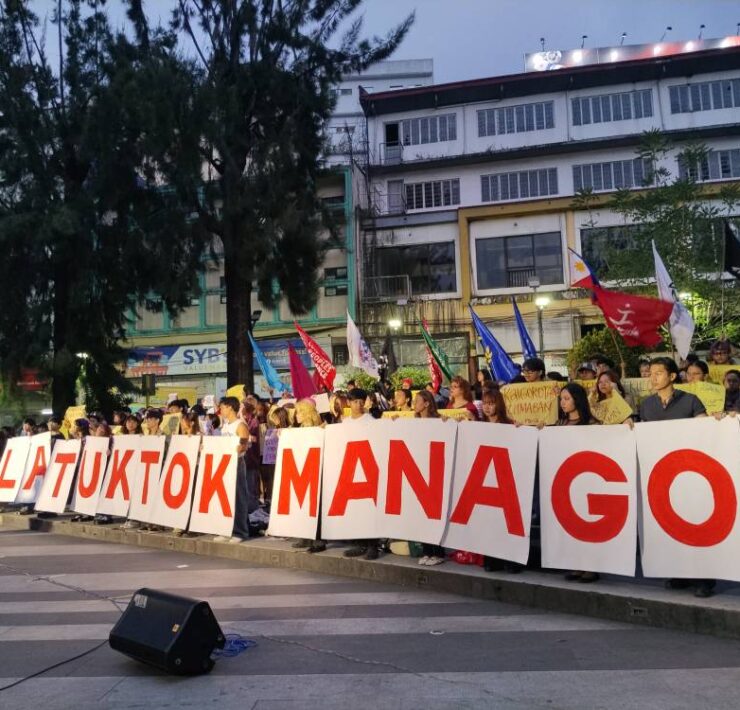One nurse’s journey: How a nation loses its caregivers

NEW YORK—It was the icy feel of powdery snow in his fingers, during his first Christmas away from home in 2022, that made Filipino nurse Rolando Daga finally realize he had arrived in America.
But it was not the snow that made him think hard how this stroke of good fortune would change his life in this new, vast and foreign land.
It was his salary today, working as a registered nurse in the United States paid with the mighty American dollar, that has made him doubly count his blessings.
Consider this: what Daga earned in a month in his job in the Philippines, he earned that in a day here in the United States.
His last salary as an emergency room nurse at the privately funded Divine Word Hospital in Tacloban, Leyte, was P21,000 a month.
Now, Daga is paid $656 or about P38,400 for a 12-hour shift in one day as an interventional radiology nurse at Medical City Hospital in Dallas, Texas, some 2,500 kilometers south of this city.
This nurse, a Waray and a Leyteño, makes more money than President Marcos, an adopted Waray and Leyteño.
“I have nothing but gratitude for this opportunity. I owe everything to God for bringing me to America,” the 36-year-old immigrant told this reporter.
‘Hard choices’
On vacation here to spend the holidays with friends, Daga is enjoying this city’s bright lights at the fabled Times Square and reflecting on his life-changing decision three years ago to work and live in America after toiling as a nurse for 13 years in the Philippines.
“Leaving your family behind to work abroad is never easy. But we have to make hard choices and hard decisions in life,” said Daga, a devout Catholic who says he misses his Sunday routine of singing hymns as a member of the choir at Our Lord’s Transfiguration Cathedral in his hometown of Palo, Leyte.
But the pandemic came in 2020 and Filipinos started dying from the Covid-19 virus.
Amid that ghastly backdrop, nightly executions of young men his age in his hometown, triggered by President Rodrigo Duterte’s drug war, caused Daga to be fearful about his future.
With the low pay, delayed benefits, chronic understaffing, punishing long hours and sometimes cruel emotional toll that plagued members of his profession, Daga’s frustrations reached a tipping point.

In July of 2022, he and 31 other Filipino nurses signed a three-year contract and received their EB3 visas to work in the United States with Avant Healthcare, a US-based company specializing in the recruitment of Filipino nurses.
Daga’s mother, 61-year-old Racquel, told this reporter in a Facebook chat that “His decision to work in America was fueled by the pandemic. RG (Rolando’s nickname) felt his career was going nowhere.”
Failed legislation
Like a battle-hardened soldier, Daga became a top draw for labor recruiters because he worked through the double gauntlet of the pandemic and, before that, the unprecedented disaster of Supertyphoon “Yolanda” (international name: Haiyan) which killed thousands of his province mates in Leyte.
Since 2002, various iterations of Republic Act No. 9173 (the Philippine Nursing Act enacted that year) have failed to provide the necessary benefits promised even after it had become law.
“Parang sirang plaka (Like a broken record),” Daga said, referring to the broken promises of failed legislation tried by a succession of leaders from Gloria Macapagal-Arroyo to Mr. Marcos, in their hapless bid to increase the salaries and improve the working conditions of nurses whom, ironically, they call “heroes.”
One such measure from 2019 was Senate Bill No. 260, filed by then Sen. Francis Pangilinan which proposed a starting salary of P30,500 for nurses—even if the Supreme Court already ruled that year that the said salary was, in fact, prescribed by RA 9173.
“Good luck!” Daga said, showing a sly smile.
When he left on July 1, 2022, the government still owed Daga P45,000 in hazard pay under the One Covid Allowance (OCA) that Duterte had promised health-care workers who worked during the pandemic.
“For me, it was the last straw,” Daga said, admitting that his full hazard pay was paid only six months after his arrival in the United States.
As Daga tried to settle in his new life in America, tragedy struck twice—his beloved aunt Rosario died of breast cancer and a close cousin, Dandy, committed suicide in their hometown.
Road trips
“May kapalit ang separation from our families,” Daga said with a hint or sadness. (Separation from our families has a price.)
Driving a sleek, brand-new pearl-white Subaru Crosstrek, Daga said what he loves about America now are the national parks and its beautiful, wide-open spaces.
“I love driving in the open roads,” he said.
In one of his frequent road trips, Daga has even traveled as far as Canada to visit an uncle there.
“I rode a pedicab and a jeepney to work every day in Tacloban, so this is a new thing for me,” the nurse said as he looked with pride at his new car.
It was his first major acquisition as an immigrant in America—and, according to him, his gift to himself.
Almost assured of a green card—or the right to live in the United States permanently—Daga becomes part of nearly 200,000 Filipino nurses who now call America home.
“To work and live in America is still the biggest dream for most Filipino nurses,” said Dr. Mary Jane Garcia-Dia, past president of the Philippine Nurses Association in America (PNAA), the biggest group of Filipino nurses with 55 chapters across the United States.
Daga remembers that in his 2008 class of some 60 students at St. Scholastica’s College of Health Sciences in Tacloban, about a third had left to work abroad in Saudi Arabia—where some 130,000 Filipino nurses are working—and in the United States, Germany and the United Kingdom.
He said this exodus of nursing jobs will continue because the present administration is all too willing to send them leaving for jobs abroad instead of trying to sustain their welfare in an already badly hemorrhaging health care industry.
“They are after our remittances. It’s that simple,” Daga said.
Benefits slashed
The President himself admitted to this when he asked a group of doctors and nurses to stand up before a crowd, during a side trip to New Jersey when he visited the United States in September 2022 to address the United Nations.
In his speech before that Filipino community, Mr. Marcos said 40 percent of the $34.8 billion contributed in 2021 by overseas Filipino workers (OFWs) came from US-based health-care workers.
“And then [they’ll even remove] PhilHealth [from the] budget,” Daga said, referring to the President’s plan to cut P74 billion from the much-needed health care benefits for vulnerable Filipinos in the proposed 2025 national budget.
“But I have done my part for my country. Now it is time for me to take care of myself and my family,” the nurse said.
Daga remembered the first time he set foot on American soil was on July 3, 2022—the eve of US independence.
Looking up at the sky, he said he thought about the millions of men and women who—like him—arrived in America to follow their dreams.
“It is my time. This is my time,” Daga whispered to himself, as fireworks started to burn bright in the night sky.





















